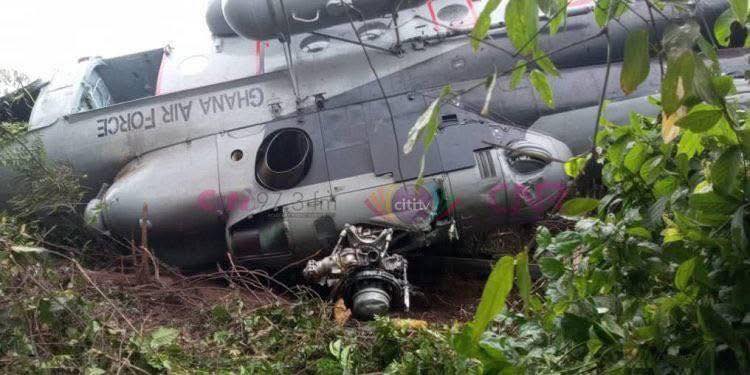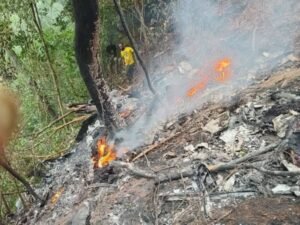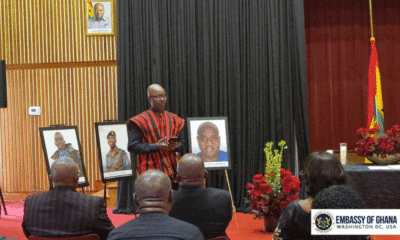Published
6 months agoon
By
Adubianews
Former Air Force officer Wing Commander Nelson Patrick Sorgbordzor has refuted claims that adverse weather conditions were a decisive factor in the recent military helicopter crash that claimed eight lives. He stressed that both pilot competency and strict operational protocols make it unlikely that weather alone caused the tragedy.
“In the Air Force, or everywhere, we have grades of pilots,” Sorgbordzor explained. “If he were not qualified to fly in bad weather, he wouldn’t fly.”

He detailed the structured licensing system that determines a pilot’s clearance to operate in various meteorological conditions. “We have licences, maybe A, B, C, D, and it’s all green that makes them fly in all weather,” he said. “And I don’t think the bad weather was so bad.”
Sorgbordzor’s remarks challenge the assumption that weather played a central role, suggesting the pilot would have been properly certified to navigate such conditions.
The retired officer also highlighted the difficulties of making emergency landings over dense forest terrain, pointing out that unlike populated areas, there are rarely suitable landing spots.

“Talking about an aircraft landing in a school, there was a space for it to go and land,” he noted. “But you fly over a forest area, where are you going to land? If the village had a park and they attempted to land there, that is what we call a forced landing. But over the forest, there is nowhere to land except on trees.”
His comments add to ongoing discussions surrounding the cause of the crash, which claimed the lives of eight distinguished Ghanaians.


Dr. Abdul-Kabiru Calls for Clear Answers on Helicopter Crash


Asiedu Nketiah: NDC Would Undo Helicopter Tragedy If Possible


Inusah Fuseini Calls for Sustainable Mining to Honour Helicopter Crash Victims


Ghana Embassy in Washington Holds Memorial for Helicopter Crash Victims


Col Festus Aboagye Refutes Mid-Air Explosion Claims in Military Helicopter Crash


Helicopter Tragedy Should Be Turning Point in Fight Against Environmental Crimes – Daryl Bosu


Nana Kwame Bediako Mourns Helicopter Crash Victims, Calls for National Unity After Helicopter Crash


Sam George Calls for All-Out War on Galamsey in Honour of Fallen Defence Minister


NDC Professionals Forum Mourns Victims of Ashanti Region Helicopter Crash

























